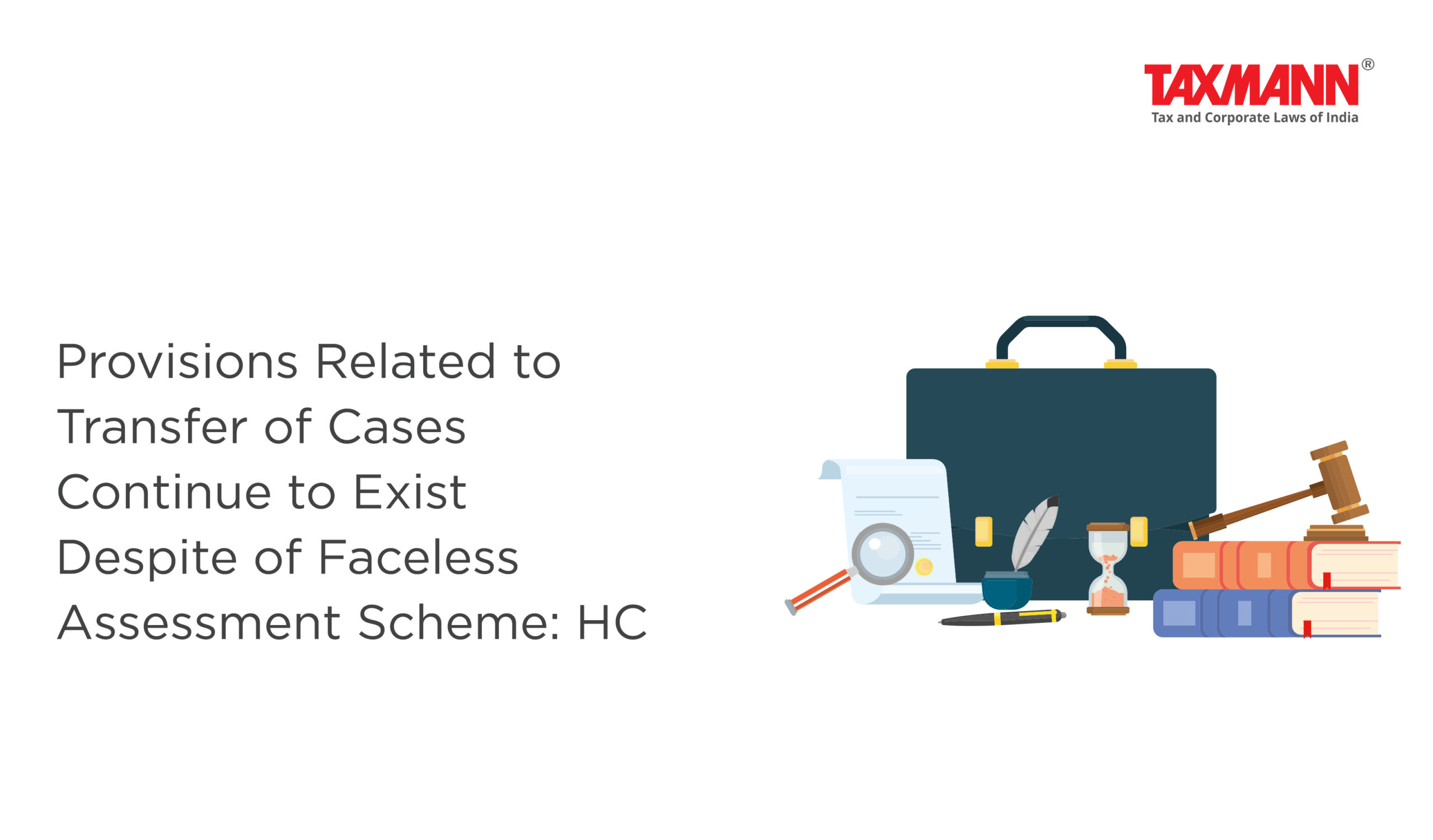Provisions Related to Transfer of Cases Continue to Exist Despite of Faceless Assessment Scheme: HC
- Blog|News|Income Tax|
- 2 Min Read
- By Taxmann
- |
- Last Updated on 30 May, 2023

Case Details: Sanjay Gandhi Memorial Trust v. CIT (Exemption) - [2023] 150 taxmann.com 459 (Delhi)
Judiciary and Counsel Details
-
- Manmohan & Dinesh Kumar Sharma, JJ.
Facts of the Case
The petitioner is registered as a charitable institution under Section 12A, and assessments have been completed under Section 143(3)/143(1) till the Assessment Year 2017-18. By way of the Finance Act 2018, the concept of E-assessment was introduced. In the relevant assessment year, notice under Section 143(2) was issued to the petitioner, as per the E-assessment Scheme, for scrutiny assessment for the Assessment Year 2018-19.
Further, the petitioner received a letter from National e-Assessment Centre stating that the pending E-assessment for the Assessment Year 2018-19 will now be completed under the Faceless Assessment Scheme. Afterwards, the CIT(E) passed the order under section 127 for transferring the jurisdiction to DCIT.
The assessee filed a writ petition to the Delhi High Court aggrieved by such transfer order.
High Court Held
The Delhi High Court held that though the concept of e-Assessment/Faceless Assessment was introduced, the Jurisdictional Assessing Officer continues to exercise concurrent jurisdiction with Faceless Assessing Officer.
Almost all the High Courts have held that transfer under Section 127 for coordinated investigation is a sufficient reason to pass such an administrative order. Consequently, it is settled law that a transfer order under Section 127 does not affect an assessee’s fundamental or legal right, and the Courts ordinarily refrain from interfering with the exercise of such power.
Under the e-assessment/Faceless Assessment Scheme, once a case is selected for scrutiny for the limited purpose of passing an assessment order for a particular assessment year, the case is assigned to National e-Assessment Centre and after assessment, the electronic records of the case are to be transferred back to the Jurisdictional Assessing Officer.
The e-Assessment/Faceless Assessment Scheme stipulate that the provision of Section 127 shall apply subject to exceptions, modifications and adaptations as specified therein. Further, the said schemes enlarge and supplement the power of transfer by authorising the National e-Assessment Centre to transfer the assessee’s case at any stage of assessment to the Assessing Officer having jurisdiction over the case, i.e., from Faceless Assessing Officer to Jurisdictional Assessing Officer.
Therefore, the transfer of a case under Section 127 is an altogether different power that continues to exist even after introducing the E-assessment/Faceless regime. The power of transfer under Section 127 is not in any manner denuded by the Faceless Assessment Scheme when the transfer is sought to be made from a Jurisdictional Assessing Officer under one Principal Commissioner of Income Tax to another Assessing Officer under a different Principal Commissioner of Income Tax who are not exercising concurrent jurisdiction over the case.
Thus, the transfer of assessments of the petitioner to Central Circle by way of impugned orders passed under section 127 was in accordance with the law and justified
Disclaimer: The content/information published on the website is only for general information of the user and shall not be construed as legal advice. While the Taxmann has exercised reasonable efforts to ensure the veracity of information/content published, Taxmann shall be under no liability in any manner whatsoever for incorrect information, if any.

Taxmann Publications has a dedicated in-house Research & Editorial Team. This team consists of a team of Chartered Accountants, Company Secretaries, and Lawyers. This team works under the guidance and supervision of editor-in-chief Mr Rakesh Bhargava.
The Research and Editorial Team is responsible for developing reliable and accurate content for the readers. The team follows the six-sigma approach to achieve the benchmark of zero error in its publications and research platforms. The team ensures that the following publication guidelines are thoroughly followed while developing the content:
- The statutory material is obtained only from the authorized and reliable sources
- All the latest developments in the judicial and legislative fields are covered
- Prepare the analytical write-ups on current, controversial, and important issues to help the readers to understand the concept and its implications
- Every content published by Taxmann is complete, accurate and lucid
- All evidence-based statements are supported with proper reference to Section, Circular No., Notification No. or citations
- The golden rules of grammar, style and consistency are thoroughly followed
- Font and size that’s easy to read and remain consistent across all imprint and digital publications are applied



 CA | CS | CMA
CA | CS | CMA
